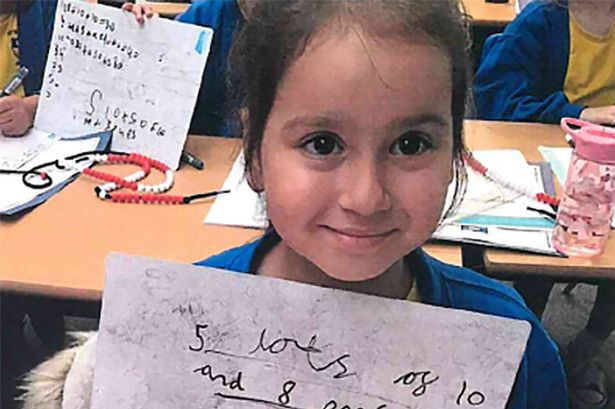The tragic death of 10-year-old Sara Sharif in Woking, Surrey, has unfolded as a deeply disturbing case of alleged child abuse, culminating in her untimely demise and a subsequent international manhunt for her father, Urfan Sharif, his partner, Beinash Batool, and his brother, Faisal Malik. Sara’s lifeless body was discovered at the family’s home in the early hours of August 10, 2023, after a call made by Urfan Sharif to Pakistani police from Islamabad. The subsequent post-mortem examination revealed the horrifying extent of Sara’s suffering, indicating that she had endured extensive and prolonged physical abuse, marked by numerous injuries, some of which were old and indicative of sustained maltreatment. This gruesome revelation has cast a pall of grief and outrage over communities both in the UK and Pakistan, as authorities work tirelessly to unravel the circumstances surrounding Sara’s death and bring those responsible to justice.
The initial discovery of Sara’s body sparked an immediate investigation by Surrey Police, who swiftly identified Urfan Sharif, Beinash Batool, and Faisal Malik as key persons of interest. It was established that the trio, along with five children, had travelled to Pakistan on August 9th, just hours before Sara’s body was found. This hasty departure, coupled with the gravity of Sara’s injuries, quickly led investigators to treat the case as a potential murder. The ensuing international collaboration between UK and Pakistani authorities has focused on locating the three adults, with Interpol issuing notices and Pakistani police conducting raids and interviews across the country. The involvement of multiple jurisdictions adds layers of complexity to the investigation, highlighting the challenges faced when pursuing justice across international borders.
The circumstances leading up to Sara’s death are under intense scrutiny, with investigators piecing together a timeline of events and examining potential warning signs that may have been missed. Reports suggest that Sara was known to social services and that concerns regarding her welfare had been raised in the past. This raises critical questions about the effectiveness of child protection mechanisms and whether opportunities to intervene and prevent this tragedy were missed. The investigation will delve into the history of the family, exploring any previous instances of reported abuse or neglect, as well as the nature and extent of social services involvement. Understanding these factors is crucial for identifying potential systemic failures and implementing preventative measures to safeguard vulnerable children in the future.
The case has sparked widespread public outcry and media attention, both in the UK and Pakistan. The horrific nature of Sara’s death has deeply affected communities, prompting vigils, memorials, and calls for justice. The focus has also been on ensuring the safety and wellbeing of the five children who travelled to Pakistan with the adults. Authorities are working to locate them, assess their welfare, and potentially repatriate them to the UK. The case has also fueled debate surrounding international parental child abduction and the complexities of cross-border legal proceedings. The challenges of extraditing individuals from Pakistan to the UK further complicate the pursuit of justice in this case.
As the investigation unfolds, the legal processes involved are becoming increasingly complex. Securing the extradition of Urfan Sharif, Beinash Batool, and Faisal Malik from Pakistan presents significant legal hurdles. The absence of a formal extradition treaty between the UK and Pakistan adds to the intricacies of this process. Negotiations between the two countries will be crucial in navigating these legal complexities and ensuring that those responsible for Sara’s death are brought before a UK court. The legal proceedings will also involve gathering evidence from both countries, coordinating witness testimonies, and navigating potentially conflicting legal systems. The pursuit of justice in this case demands meticulous legal maneuvering and international cooperation.
The tragic death of Sara Sharif serves as a stark reminder of the vulnerabilities faced by children and the critical need for robust child protection systems. The investigation into her death must not only bring those responsible to justice but also serve as a catalyst for reviewing and strengthening child safeguarding practices. This includes enhancing communication and collaboration between agencies, improving the early identification and assessment of at-risk children, and ensuring timely interventions to prevent future tragedies. Sara’s case highlights the devastating consequences of child abuse and the urgent need for a collective societal effort to protect children from harm. Her memory must serve as a driving force for positive change, prompting a thorough examination of existing safeguards and the implementation of effective measures to ensure the safety and well-being of all children. Only through such concerted efforts can we hope to prevent similar tragedies from occurring in the future.














